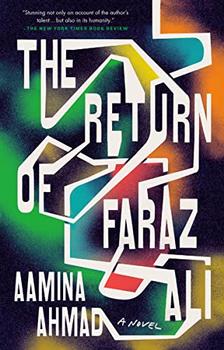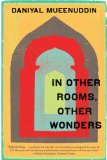Summary | Excerpt | Reading Guide | Reviews | Beyond the book | Read-Alikes | Genres & Themes | Author Bio

A Novel
by Aamina AhmadSent back to his birthplace - Lahore's notorious red-light district - to hush up the murder of a girl, a man finds himself in an unexpected reckoning with his past.
Not since childhood has Faraz returned to the Mohalla, in Lahore's walled inner city, where women continue to pass down the art of courtesan from mother to daughter. But he still remembers the day he was abducted from the home he shared with his mother and sister there, at the direction of his powerful father, who wanted to give him a chance at a respectable life. Now Wajid, once more dictating his fate from afar, has sent Faraz back to Lahore, installing him as head of the Mohalla police station and charging him with a mission: to cover up the violent death of a young girl.
It should be a simple assignment to carry out in a marginalized community, but for the first time in his career, Faraz finds himself unable to follow orders. As the city assails him with a jumble of memories, he cannot stop asking questions or winding through the walled city's labyrinthine alleyways chasing the secrets—his family's and his own—that risk shattering his precariously constructed existence.
Profoundly intimate and propulsive, The Return of Faraz Ali is a spellbindingly assured first novel that poses a timeless question: Whom do we choose to protect, and at what price?
Each character's journey is heartbreaking and unforgettable. I was particularly intrigued by the women portrayed throughout the novel, most of whom are viewed with disdain by Pakistani society — throwaway people who nevertheless find a way to survive. This remarkable debut has a lot of depth, but the downside is that it's not a quick read. I didn't feel like it dragged or was a slog in any way, but it also didn't have much forward momentum, its overwhelming emphasis being on character development...continued
Full Review
 (594 words)
(594 words)
(Reviewed by Kim Kovacs).
 Aamina Ahmad's debut novel, The Return of Faraz Ali, takes place in 1968 in Lahore's red-light district, and several of the characters are tawaifs — sex workers.
Aamina Ahmad's debut novel, The Return of Faraz Ali, takes place in 1968 in Lahore's red-light district, and several of the characters are tawaifs — sex workers.
"Tawaif" comes from the Urdu word "tauf," which means to go round and round. While the term is considered derogatory now, originally it was one of respect for a highly-skilled courtesan in what was then North India. These women were well-regarded and generally moved in the highest circles, including the royal court. They were entertainers proficient in music and dancing, valued for their ability to socialize with the elite men of the time. They had wealth, power and prestige, and were considered the last word in etiquette; having a tawaif attend one's celebration was a ...

If you liked The Return of Faraz Ali, try these:

by Jhumpa Lahiri
Published 2014
Epic in its canvas and intimate in its portrayal of lives undone and forged anew, The Lowland is a deeply felt novel of family ties that entangle and fray in ways unforeseen and unrevealed, of ties that ineluctably define who we are

by Daniyal Mueenuddin
Published 2010
A major literary debut that explores class, culture, power, and desire among the ruling and servant classes of Pakistan.